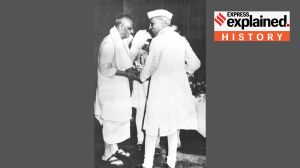Indian aviation: A good story that can boomerang
A continuing slump in global demand coupled with steep fall in premium passenger traffic has hit the global aviation sector to such an extent.....
A continuing slump in global demand coupled with steep fall in premium passenger traffic has hit the global aviation sector to such an extent that even with a steep fall in oil prices,the industry revised its downward forecast to a whopping $4.7 billion from an earlier loss-forecast of $2.5 billion in December 2008.
Overall losses that airlines faced in 2008 was above $5 billion,but that was largely due to an average oil price of $99 per barrel over the year. Oil prices,which formed an average 33 per cent of overall operating costs of airlines in 2008,are expected to drop to 25 per cent of operating costs with an expected fuel price of $50 per barrel,according to the International Air Transport Association (IATA). Also,industry spending is expected to fall to $116 billion from $168 billion in 2008.
Fuel is the only good news. But the relief of lower fuel prices is overshadowed by falling demand and plummeting revenues. The industry is in intensive care, said IATA director general and CEO Giovanni Bisignani.
IATA also termed the current crises as the deepest post the Great Depression. With industry revenue falling by 12 per cent ($62 billion) to $467 billion,the crisis has been termed far greater than that post-9/11,when industry revenues fell by 7 per cent or $23 billion. The airline body has also toned down its forecast on aircraft deliveries (Boeing and Airbus) to 700 from 1,100 in 2008 a drop of 37 per cent.
Giovanni also took a dig at the Indian aviation sector,saying that the countrys story is a good one that can boomerang. Giovanni was referring to the enormous cost at which airports in Mumbai and Delhi were being reshaped.
The cost of reshaping airports in India is unacceptable, he said,as the current times did not allow for such expenditure. And the infrastructure is just not enough, he added. According to him,India has been a great story and under Praful Patel,there have been more than 20 bilateral agreements signed and aviation has benefited immensely.
But it takes 20 years to build a runway, he added,pointing out at the lack of infrastructure in the country. On taxing of Indian fliers with development fees,he said that its a step in the wrong direction.
As a region,Asia Pacific will be the hardest hit with carriers expected to post combined losses of $1.7 billion,according to IATA. While overall traffic fell 5 per cent in January this year,in Asia
Pacific it fell by 8.4 per cent. Trade in the region is also expected to fall 20 per cent in 2009.
While overall passenger traffic is expected to contract by 5.7 per cent and cargo demand to fall by 13 per cent compared to an earlier forecast of 3 per cent and 5 per cent respectively,Giovanni said signs of revival could only be expected from 2010,although a slight recovery was possible in the later part of 2009.
- 01
- 02
- 03
- 04
- 05






























